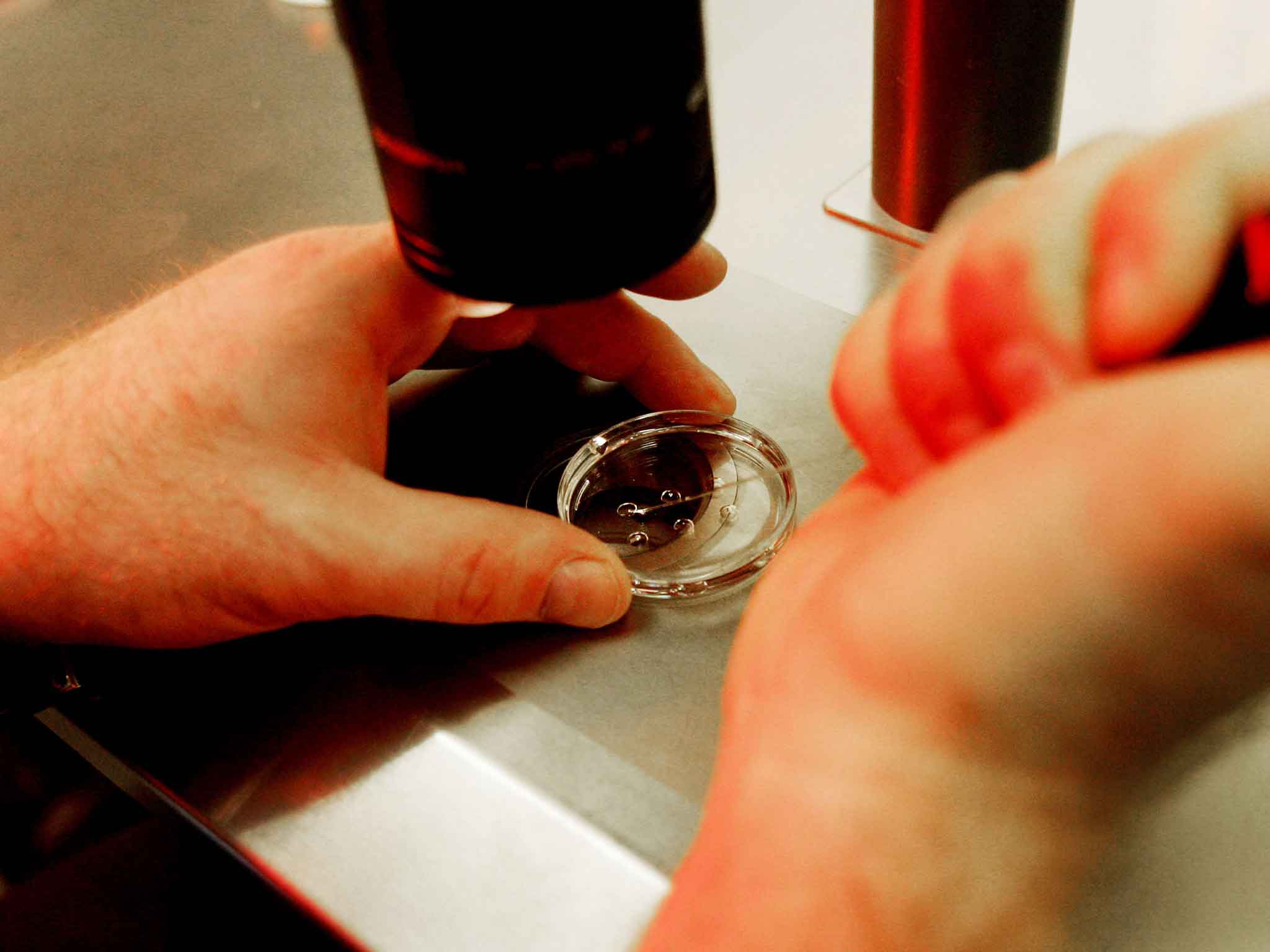Gene-editing embryos should be banned to prevent 'genetically-enhanced children', scientists warn
Crispr/Cas9 technique could allow scientists to change DNA of human embryos

An international ban on the use of gene-editing technology to create genetically-modified babies needs to be put in place to prevent rogue IVF clinics around the world selling the idea of “genetically-enhanced children” to gullible couples, scientists said.
Advances in the technology of genetic manipulation, specifically the development of a gene-editing technique called Crispr/Cas9, could allow scientists to change the DNA of human IVF embryos before it has been shown to be safe, they warned.
This week, The Independent reported on the first licence application by British scientists to use Crispr/Cas9 on human IVF embryos. The researchers intend to study the early developmental problems that affect women who suffer repeated miscarriages, but the embryos will not be allowed to develop beyond the 14-day legal limit.
The licence application by researchers at the Francis Crick Institute in London also prohibits the transfer of these genetically modified embryos from the laboratory dish into the womb, which is a criminal offence under the UK Human Fertilisation and Embryology Act 2008.
However, while some countries such as Germany have even tighter legislation that prohibits this kind of non-clinical research, many other countries have little or no laws to prevent scientists from using Crispr/Cas 9 on IVF embryos destined for clinical use, said Professor Robin Lovell-Badge, a senior scientist at the Crick Institute.
“The issue that really worries and scares some of us is that, like the stem cell field, you may have rogue clinics that advertise their services to provide disease free, or enhanced children. That would be absolutely terrible. We would like there to be mechanisms to prevent that happening on a global scale,” Professor Lovell-Badge said.
Earlier this month, an international consortium of scientists, philosophers and ethicists, called the Hinxton Group, warned that rogue IVF clinics could be tempted to use advances in gene-editing technology in an unregulated way, just as unregulated stem-cell treatments are sometimes offered in some countries to desperate patients.
“There is serious concern that genome editing technologies might be used in reproductive contexts long before there are data sufficient to support such use, and before the international community has had the opportunity to weight the benefits and harms of moving forward,” said a statement issued by the Hinxton Group after it met this month in Manchester.
“There will also be pressure from individuals wishing to use the technology for their own medical, reproductive and other needs,” the group warned.
Professor Peter Braude, a retired fertility expert at King’s College London, said there needs to be a wider discussion about how gene-editing technology can be used safely before clinics start to offer it commercially.
“Reproduction is so intertwined with making money unfortunately. Many new IVF technologies have been taken on board with the outcome of ‘look there’s a baby’ without first asking questions about safety,” Professor Braude said.
“Clearly there needs to be a discussion about how this gene-editing technology is used. You should understand it before applying it. There has to be an understanding of the science, which is very new, but it would be wrong to have a moratorium that simply says ‘don’t do anything more’,” he said.
Join our commenting forum
Join thought-provoking conversations, follow other Independent readers and see their replies
Comments